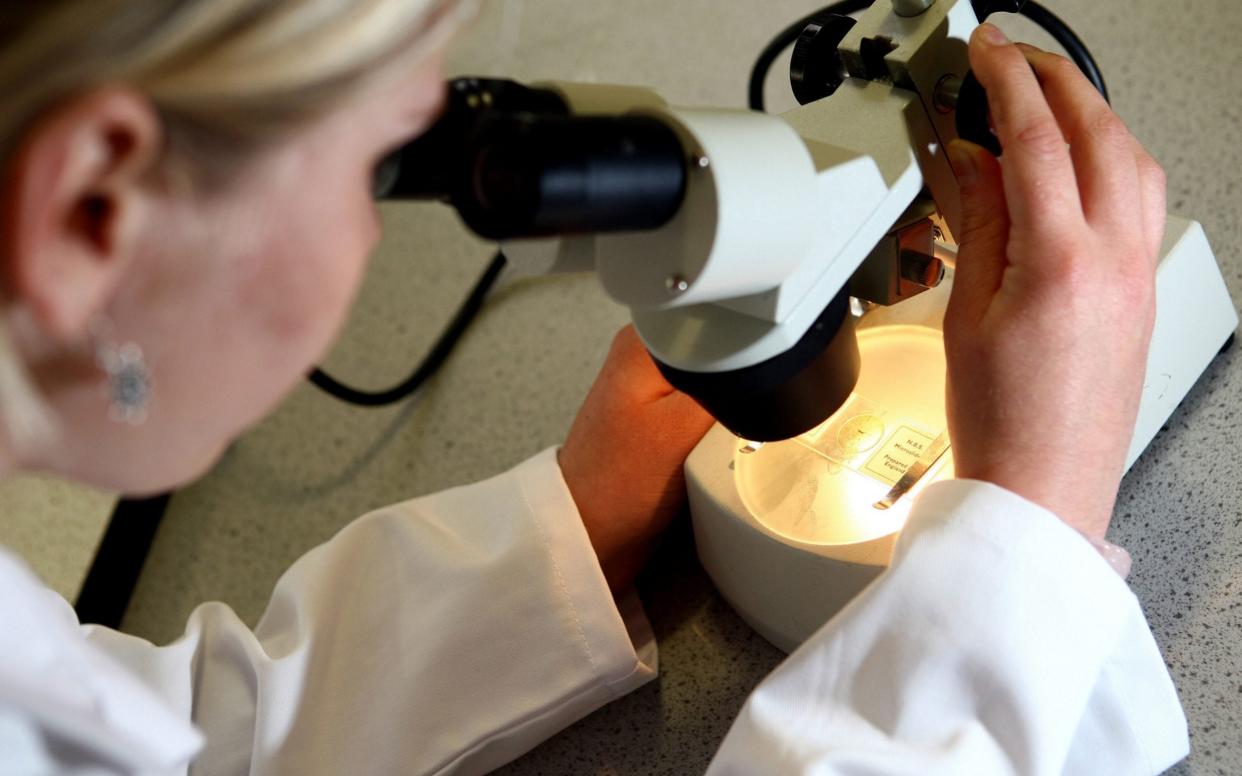UK medical charities plead for Government help to counter dramatic income loss

Life-saving cancer and heart research could be set back by decades because of a "catastrophic" loss of income for medical charities, leading scientists have warned.
More than 60 scientists have written to Boris Johnson to plead for an investment in the sector, warning that a generation of researchers, and all their potential breakthroughs, could be lost.
The letter from leaders at Cancer Research UK and the British Heart Foundation (BHF) follows estimates suggesting medical charities could lose around half their funding this year due to the closures of shops and fundraising events and a dip in other donations.
On Monday, scientists urged the Government to set aside funding to help the sector through the crisis, saying that without it the knock-on effect on the UK's science sector could be devastating.
Professor Sir Nilesh Samani, the medical director of the BHF, said: "The immediate impact is on the development of new treatments, but ultimately we could be set back by a decade or more.
"We're entirely funded by the public, through shops, fundraising events, and so on. For example, our London to Brighton cycle ride involves 17,000 people."
Medical research was vital for the health and wellbeing of the country, argued Prof Samani, and charities did not want to "go with our begging bowl to the Treasury".
Iain Foulkes, Cancer Research's UK executive director of research and innovation, said: "The biggest issue is our shops having been closed and the loss of big events like Race for Life, involving hundreds of thousands of families.
“We anticipate a V-shaped [economic] recovery, but we need help to bridge us over that time. The problem is that by the time we recover we may have lost a lot of scientists that we won't get back."
The two charities, which between them fund more than half of all UK-based independent research into cancer and heart disease, said life-saving research would now face "drastic" cuts.
Their letter also warned that this would have a knock-on effect on the whole of the UK life science sector, with every £1 invested by the BHF attracting more than £2 of additional funding.
More than 150 charities have called on ministers to establish a life sciences-charity partnership fund across the UK, providing matched funding from Government for future charity research over the next three to five years, starting with £310 million this year.
"Without your support, the UK risks a slide backwards, undermining decades of pioneering and life-saving research, as well as losing a generation of new researchers and a major decline in our nation's international competitiveness in life sciences that we have worked so hard to achieve,” the letter warned.

